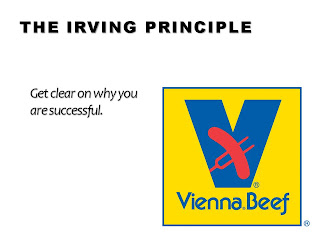- Are we dedicating enough time to creating new marketing ideas?
- What is a marketing strategy that works better than it seems like it should?
- How are we deciding who is in our target market?
- What is our best marketing tool and why?
- What is our most cost-effective marketing tool?
- How are we deciding which media outlets to use?
- How are we capturing and using comments from satisfied customers?
- How are we measuring the success of marketing strategies?
- How has our marketing changed over the past few years?
- What is the source of our largest frustration related to marketing?
- What company or organization has the best (coolest, most creative, most cost-effective, etc.) marketing ideas? Why?
- What marketing tool or strategy do we need to stop using?
Marketing Ideas to Consider:
- All great marketing starts with a great product or service to market. Be great.
- Value people first, excellent work second, everything else third.
- Understand the most influential drivers that bring business in, bring business back and drive business away.
- Stay connected with and bring surprise value to your "Torchbearer 23 List" - 23 contacts that carry the torch for you and/or your business. (Read more about Torchbearers below.) Never ask them for anything, though. Just stay connected and serve his/her needs when you can.
- Learn where, when and how to start customer relationships.
- Learn where, when and how your competition is starting customer relationships.
- Make the most of your raving fans.
- Foster relationships that will lead to piggy-back, plan B, or other ways to provide value-added options for new customers.
- Create brainstorming moments with your team: Assign an unbiased discussion leader, capture everything, no filters, no initial judgments, pick one or two ideas to try on at low-cost.
Brainstorming Rules:
- Schedule periodic brainstorming sessions to keep a steady flow of ideas flowing.
- Have an unbiased discussion leader who is in charge of keeping the discussion going.
- Capture everything. Flip-chart ideas in the moment. Take a picture of each one when the session is over and save those images for later.
- No filtering of ideas - no matter the cost, the legality, the chance of success, etc.
- Keep initial judgments quiet. There will be a time to give pros and cons. A brainstorming session is not that time.
- At the end of the session, pick a few low to no-cost ideas and try them on. Also, pick a few that will require resources to implement and make sure those ideas live to be discussed another day.
A Torchbearer:
- Thirsty for helping company/organization grow.
- Owns a strong allegiance.
- Values and fosters relationships.
- Gains part of identity from organization.
- Clearly understands his/her role.
- Knows and believes in company/organization's core values.
- Speaks positively about the organization, it's leadership and it's members.
These ideas were shared as part one of a three-part series of business development seminars I presented for the BBB Serving Central Oklahoma on May 20, 2015. Learn more about the series and value the BBB can bring to your business here.
















